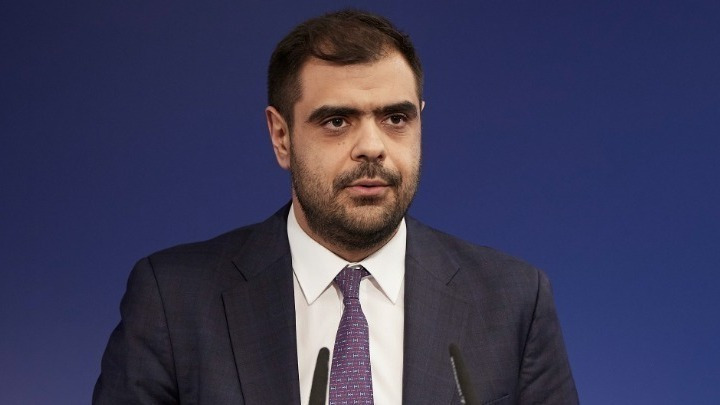Fiscal escape clause for defence spending a 'good step', says Marinakis

Government spokesperson Pavlos Marinakis welcomed the idea of a fiscal escape clause with respect to defence spending while talking to public broadcaster ERT on Friday. He said it was "good step" because Europe will thus invest more money in its defence and also because it will save funds for countries such as Greece, which already spend more than 3% of GDP on defence, for other more important areas of spending, such as health and education, while adhering to fiscal rules.
Regarding the European defence fund, he said the government was "cautiously optimistic" since the first text released so far was encouraging.
Marinakis also commented in the EU and Greek stance on migration, recalling the events in Evros in 2020 and noting that Greece was among the first countries to adopt a "tough but fair" stance on migration, which emphasised protection of the external borders without sacrificing the defence of human lives and rights. Whereas Greece had greatly speeded up the processing of asylum seekers, he pointed out, "Europe is, unfortunately, not returning, not sending back up to 80% of the illegal immigrants. In other words, eight in 10 illegal immigrants in Europe stay in Europe."
He clarified that those whose application for asylum is rejected are not refugees but illegal immigrants and, as such, should go back to where they came "as they have no business in either Greece or Europe". He noted that the problem was in the list of the countries considered safe, which he said should be expanded, based on a common European policy. This should be centred on human rights, of course, he added, but "also put European citizens at the centre" and "exhaust all margins" of the returns process.
"This is something in which Greece has played a leading role in previous years, it is an approach that is now being vindicated, but the best vindication is the full implementation of everything we say," Marinakis added, saying he expected this to be discussed at upcoming EU meetings.
Marinakis went on to deny any "submissiveness" or concessions on the government's part with respect to the laying of an electrical cable for the Crete-Cyprus interconnection, saying further details will be unveiled in the coming days. Regarding the parliamentary preliminary investigation of former deputy minister Christos Triantopoulos, he pointed out that the prime minister had already made statements about revising article 86 of the Constitution, so that parliament and parties were no longer a "filter" in the prosecution of politicians.
He pointed out that Triantopoulos' request to be referred directly to the justice system and forego the process in Parliament was not illegal, since no one had cited any article of the Constitution it contravened. He also denied that the government had anything to fear from the parliamentary investigation, since the judicial council had all the same powers of investigation, with the additional bonus of impartiality. He refuted the opposition's claim that a parliamentary investigation committee could then extend the charges to other political figures, saying this was not the case.
The spokesperson commented on the recent government reshuffle and the controversy over deputy energy minister Nikos Tsafos, saying that people were interested in results and not reshuffles. He also accused main opposition PASOK-Movement for Change of "adopting an incredible lie about Mr. Tsafos" in relation to a map published by a newspaper, which he said had misrepresented the deputy minister's intentions.
"I think there must be a limit to personal attacks and character assassination, they don't offer anything to public dialogue. We are asking for political confrontation on policies," he added.


